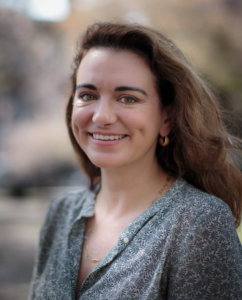
Mullins Prize 2021: Sarah Brothers
"Street Doctors"

We thank the Mullins Prize Committee, including Amanda Windle (Chair), Gloria Baigorrotegui, and Bryn Seabrook, for their hard work.
Acceptance
I am honored to receive the 2021 Nicholas C. Mullins Award for my article, A Good Doctor is Hard to Find: Assessing Uncredentialed Expertise in Assisted Injection, published in Social Science and Medicine. I am deeply grateful for the generous feedback I received from Rene Almeling, Marcia Inhorn, Robert Heimer, Loïc Wacquant, Jess Lin, the Yale Medical Anthropology Research Group, the Yale Comparative Research Workshop, and the editors and peer-reviewers at Social Science and Medicine. I am also thankful to the 4S organization for their support for graduate student research and for providing the space to discuss this project. Finally, I owe a tremendous debt of gratitude to the people who participated in the study and generously shared their time, thoughts, and experiences with me.
Bio
Sarah Brothers is assistant professor of Sociology and Public Policy at Pennsylvania State University. She recently completed her doctorate in Sociology at Yale University. Her research focuses on how vulnerable groups experience and respond to health-related issues. In her dissertation research, she examines the construction, performance, and assessment of uncredentialed expertise in assisted injection, a high-risk and common practice in which one person injects another with illicit drugs. Her work has been supported by the National Science Foundation Graduate Research Fellowship Program, the Mellon/ACLS Dissertation Completion Fellowship, the P.E.O Scholars Award, the Woodrow Wilson Fellowship in Women’s Studies, and others.
